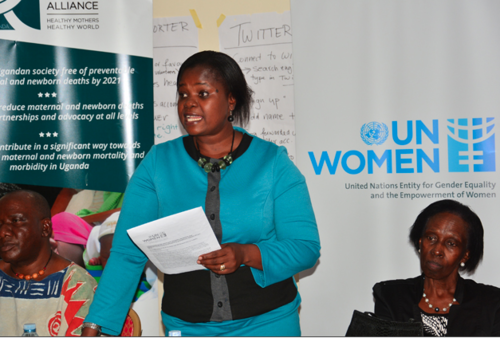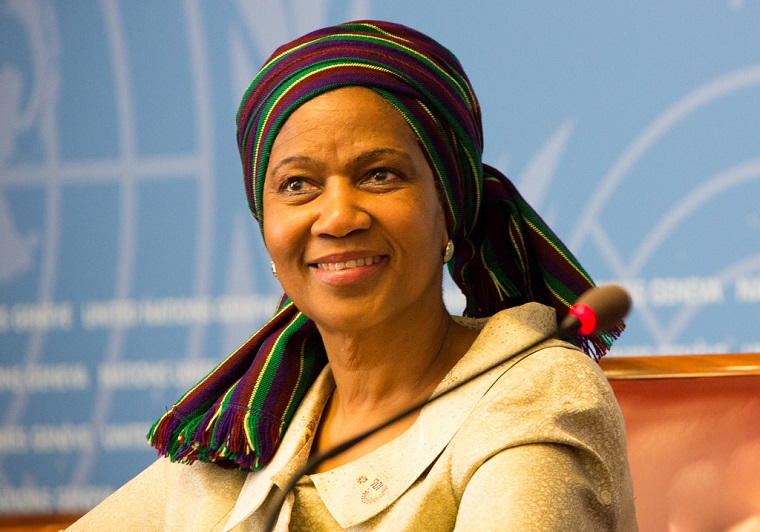As Uganda commemorates International Women’s Day, the world is focusing on rural women and girls within the context of 2030 agenda of leaving no one behind.
Women and girls are central to the sustainability of rural households and communities, improving rural livelihoods and overall wellbeing, but their role and significance is often overlooked.
Rural women have extensive knowledge and experience in food security and nutrition, land and natural resource management, which bring additional resources to resilience against the negative effects of climate change on rural livelihoods.
Through training and skills development, rural women and girls can play a much greater role in food production and agricultural value chains, both as current and future agricultural workers and entrepreneurs.
Women farmers can also play a significant role in protecting biodiversity through use of indigenous crops and agro-ecological farming methods that are environmentally friendly and free of toxic chemicals.
In all of this, governments play a vital role: providing the social and physical infrastructure that enables rural women’s participation in sustainable, climate-resilient agricultural production, processing, transport and marketing.
Rural women contribute to most of the global food production, reaching as high as 80% in Africa and 60% in Asia.
In Uganda, the agricultural sector employs over 72% of the total labour force, and of these, over 80% are women.
The sector further provides 85% of the total exports for the country. Therefore, the dedication of this year’s International Women’s Day to rural women is quite befitting because of the key role they play in the world.
Despite the impressive contribution to the agricultural industry by rural women, targets for improvement of the agricultural industry have sadly failed to take this reality into consideration.
For instance, women receive only 1% of agricultural credit, own only 2% of the agricultural land, and receive only 5% of credit extension resources.
A study conducted in 2015 on the Cost of the Gender Gap in Agricultural Productivity revealed that Uganda loses USD64 million in agricultural productivity because of prevailing gender inequalities.
Bridging the gender inequality gap is therefore catalyst for stimulating agricultural productivity and national development.
Rural girls have an equal right to their urban peers to a good education, careers in Information Communication technologies and a thriving role in the digital revolution.
Being born a girl should not automatically lead to a future of unpaid caring for family members.
Addressing this requires recognizing the importance of care work as well as reducing the time spent on it—through government investments in basic infrastructure and in time- and labor-saving technology.
Only once these inequalities are purposefully levelled, will both women and girls, whether rural or urban, be able to take their place at the heart of the achievement of the Sustainable Development Goals, and the growth of a better future for us all.
At UN Women we believe that investments in the following areas can help in uplifting the status of rural women and girls:
- There is a need to have a land tenure system that guarantees ownership of rural land by women as this would increase the long-term viability of farming
- Investment in appropriate and affordable irrigation technology, including access to gender-responsive extension services will enhance the agricultural productivity of rural women even when the climatic conditions are harsh.
- Establishment of financial facilities and products that are designed to suit rural women farmers’ needs and conditions would greatly enhance their resilience and boost agricultural productivity.
- Revival of cooperative societies that are organically formed and take into consideration rural women’s needs. These will facilitate women farmers’ access to genuine farm inputs and increase both quality and quantity of production.
- Recognize, reduce and redistribute women’s burden of unpaid care and domestic work. In this regard, increased investment in electricity, transport and water infrastructure will reduce the burden of unpaid work on families in general and women in particular.
- Strengthened implementation of laws that protect women and girls from all forms of violence, including prevention of child marriage. Equally urgent are investments in nationwide programmes that engage men and boys in changing harmful social norms and attitudes that fuel gender inequality and violence against women.
- Urgent investments are needed towards improving rural women’s access to affordable and quality sexual and reproductive health services, including family planning and maternal health care
Making the promise of the Sustainable Development Goals a reality, to leave no one behind, needs urgent action as recommended above. Elsewhere and indeed in some parts of Uganda, rural women and their organizations are on the move to claim their rights and improve their livelihoods and wellbeing.
They are using innovative agricultural methods, setting up successful businesses and acquiring new skills, pursuing their legal entitlements and running for political positions.
It is possible and it can be done. Today and every day, we urge everyone to join UN Women and activists around the world to seize the moment, celebrate, take action and transform women’s lives everywhere.

















